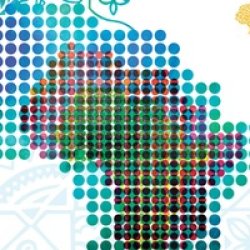 The AIDF Africa Summit, organized by the Aid & International Development Forum will take place from 2nd February to the 3rd February 2016 in Addis Ababa, Ethiopia. The conference will cover areas like The summit demonstrates best practice approaches, current initiatives and latest innovations, offering trans-disciplinary discussions with participants from all relevant stakeholder groups. The agenda has been developed in consultation with key organisations, such as WFP, IRFC, World Vision, USAID, UNICEF, World Bank, Save the Children, UN Habitat, CRS, FHI360, Oxfam, Habitat for Humanity International, IRD.
The AIDF Africa Summit, organized by the Aid & International Development Forum will take place from 2nd February to the 3rd February 2016 in Addis Ababa, Ethiopia. The conference will cover areas like The summit demonstrates best practice approaches, current initiatives and latest innovations, offering trans-disciplinary discussions with participants from all relevant stakeholder groups. The agenda has been developed in consultation with key organisations, such as WFP, IRFC, World Vision, USAID, UNICEF, World Bank, Save the Children, UN Habitat, CRS, FHI360, Oxfam, Habitat for Humanity International, IRD.
The International SBCC Summit, organized by the Johns Hopkins University will take place from 8th February to the 10th February 2016 in Addis Ababa, Ethiopia. The conference will cover areas like Social and behavior change communication – to influence social norms and individual health behaviors, Capacity Strengthening – of communication professionals at all levels, in all types of organizations.
Ethiopia International Trade Expo is a leading international trade exhibition exhibiting a wide range of products from different industries and includes general trade, food and agriculture, construction equipments, building materials and equipments, electrical and electronic appliances, automobile products, information technology, oil and gas equipments and products, fashion accessories and products, textile products and much more to add to the list. The trade serves as an exclusive platform where the buyers and sellers meet and both get benefitted. It also generates huge volumes of sales.
The 2016 “Ethio Health Exhibition & Congress” session will be held from 11th – 13th March at the Addis Ababa Millennium Hall. Under patronage Food, Medicine and Healthcare Administration and Control Authority of Ethiopia and support of Ministry of Health and Addis Ababa Health Bureau.
This event will show cases more than 150 brands of products & services from Medical equipments & Pharmaceuticals, Scientific Instruments & in consumables, Hospitals & Specialized Clinics, Wellness & Fitness Centers and Herbal & Cosmetics Industries.
Registration is already starts, please confirm your participation before September 2015 and get 10% discount.
Ethiopia Technology & Manufacturing Expo is a 5 day event being held from 30th June to the 4th July 2016 in Addis Ababa, Ethiopia.This event showcases products like Industrial, Technology, Manufacturing products, machinery & after sales services etc. in the Industrial Products, Manufacturing, Fabrication, Repair & Maintenance industries.

From ‘tragedy’ to ‘African Renaissance’ to reality: what are the most important features of African economies and the continent as a whole? Carlos Lopes discusses demography, land mass, the blue economy, migration, and more within Africa and globally, to give a better, clearer idea of Africa’s place in the world. The talk will be followed by drinks reception. For more information please email: cas@soas.ac.uk
The SEEP Network has partnered with Pollen Group to offer an introductory course on inclusive market systems development (MSD) in thin markets, in contexts such as post-conflict, environment related emergencies, and highly underdeveloped markets with limited or distorted private sector engagement. The training will strengthen practitioner application of systems-thinking and facilitative approaches to program design and implementation. The outcome of this course is a more comprehensive understanding of how to instigate systemic change in thin markets, leading to larger and more sustainable impact.
Throughout the training, participants will engage with a fictional case study based on the experiences of SEEP members implementing MSD programs in thin markets. This case will help practitioners to identify vulnerable groups, analyze thin market constraints, develop intervention strategies that are inclusive of vulnerable groups, identify leverage points for systemic change, and design partner engagement strategies that spur behavior change among public and private market actors.
This training is aimed at mid to senior level managers of market systems programs that may have some familiarity with the approach but have not experienced an in-depth training on market systems, M4P, or facilitation. The training will cover 6 main topics:
- The foundational concepts of market systems development;
- Frameworks to shape inclusive strategy and intervention design;
- How programs can engage in thin market contexts and, within these contexts, target vulnerable or marginalized groups as beneficiaries of systemic change interventions;
- Tools and tactics on how to engage market actors while promoting ownership and sustainability;
- M&E for systemic change;
- Organizational processes for more flexible and adaptive programming.
Audience
This training is aimed at mid to senior level managers of market systems programs that may have some familiarity with the approach but have not experienced an in-depth training on market systems, M4P, or facilitation.
Participants will gain:
- Strengthened understanding of complex systems, systems-theory, and its application to analyzing problems;
- Increased knowledge of market systems facilitation tools and frameworks to strengthen the design of project intervention strategies;
- Strengthened capacity on the use of facilitative tactics during project activities, including strengthening formal and informal feedback loops to inform learning and planning;
- An understanding of thin markets versus thick markets, and how to engage marginalized and vulnerable populations.
Meet the Trainers:
- Raksha Vasudevan joined Pollen Group Consulting after two years working in the humanitarian sector in west Africa, Europe and the Middle East. As a market development Strategist, she has undertaken market analyses of the livestock sector in northern Kenya and access to digital financial services in West Africa. Previously, Raksha worked with a management consulting firm in Canada and a microfinance NGO in south Asia. Raksha holds a Master’s in Development Studies and a Bachelor’s in Commerce.
- Christine Livet is a Senior Strategist with Pollen Group Consulting, with extensive experience working with market systems and facilitative programs in Kenya, Uganda, and Tanzania. She specializes in organizational change management, developing performance management systems, and training/mentoring of field staff in market systems and facilitation. Prior to working with Pollen Group (as well as formerly under Engineers Without Borders Canada), Christine worked in the dairy sector in Nepal and with the Canadian donor agency supporting the design of economic growth policies and strategies. She studied international development and economics at the University of Ottawa.
Background
Causing more than 8.2 million deaths annually cancer is one of the top killer diseases of our time. The estimated number of 14 million plus new cases occurring every year is expected to increase by 70% in the next two decades. With the majority of cancer cases and deaths now occurring in low- and middle-income countries Africa is suffering the heavy burden of this serious public health crisis. A large proportion of cancers in Africa is diagnosed at an advanced stage of the disease where curative treatment is no longer an option. This is due to the lack of screening and early detection services, as well as limited awareness of early signs and symptoms of cancer among the public and health care providers. Fear of Stigma associated with cancer also plays a role in late-stage presentation of the disease in most parts of Africa. Because many African countries lack adequate number of health facilities that can provide specialized treatment and palliative care, cancer patients are faced with long waiting period and considerable treatment costs that are beyond their economic means. With Cervical and cervical and breast cancers being the leading causes of cancer related deaths in Africa the burden of the disease in women is much worse. Gender inequalities, weak economic power of women and absence of screening and early diagnoses services contribute to the increasing number of preventable deaths of women.
The overwhelming demand for cancer treatment and care, the fragile public health system in many African nations coupled with the absences of national cancer control plan and supportive policy and financial frameworks is causing serious social and economic crises that call for an immediate and coordinated action to prevent and control cancer in Africa.
The Stop Cervical Breast and Prostate Cancer in Africa Conference is one response among many to this alarming situation. The conference is an annual event dedicated to contributing to the efforts of ending Cervical Breast & Prostate Cancer in Africa. The 10th SCCA conference will be held 24 – 27 July 2016 in Addis Ababa, Ethiopia. The conference is organized under the patronage of H.E Roman Tesfaye Abneh First Lady of the Federal Democratic Republic of Ethiopia. The organizational work of the conference is undertaken by dedicated inter-ministerial committees in partnership with Princess Nikky Cancer Foundation.

ITF is the International Taekwon-Do Federation, founded on March 22, 1966 in Seoul (south) Korea, by General Choi Hong Hi, who developed Taekwon-Do, to promote the teaching of this martial art.
At that time, nine countries were involved: Korea, Vietnam, Malaysia, Singapore, West Germany, USA, Turkey, Italy, and Egypt. Taekwon-Do is now taught in almost every country in the world, and General Choi is recognized as the Father of Taekwon-Do.
The mission of the ITF is to represent, promote, and work for the development of the practice of Taekwon-Do in all countries by coordinating and certifying Taekwon-Do activities such as competitions and seminars setting and enforcing high quality standards for technical and teaching identifying and collaborating with affiliated organizations, such as Continental Federations, National Associations, and Allied National Associations, providing assistance to local Taekwon-Do organizations Certification for Black Belt holders, international instructors and umpires.

Buildexpo Africa is the only show with the widest range of the latest technology in construction machinery, building material machines, mining machines, construction vehicles and construction equipment. After 18 successful editions of Buildexpo in Kenya and Tanzania, East Africa’s largest building and construction fair now ventures into the Ethiopian market. The first edition of Buildexpo in Ethiopia will provide international business platform by enabling global investment opportunities.
Ethiopia has one of the fastest growing economies in the world. The country has been registering a double digit growth for the last twelve consecutive years. Located in the region of the Horn of Africa, Ethiopia is the 2nd most populated country in Africa. Ethiopia’s construction sector has outgrown that of its neighbors. The construction sector will grow at an annual average growth of 18.6% and will be fueled by a swell in infrastructure investments in the region. Ethiopia has also several agreements that grant duty free access to many countries, including European countries and the USA. Business friendly climate, duty free access and competitive labour costs have successfully created new investments and employment opportunities. Ethiopia is also a member of COMESA which has an access to 20 African countries.
Buildexpo will bring you exhibitors from over 28 countries who are the finest in infrastructure development, with over hundreds of products, equipment and machinery on display.
Come, be a part of progress in Africa!

The 5th International Conference of AAAE will take place in Addis Ababa, Ethiopia from 23 – 26 September 2016 under the theme “Transforming Smallholder Agriculture in Africa: The Role of Policy and Governance”. The choice of theme has been motivated by the fact that the renewed efforts by most African governments in recent times to commit to supporting agriculture in order to reduce poverty and increase wealth among smallholder farmers are being hindered by a number of challenges not least how effectively to implement sound evidence-based policy reforms within vibrant complex political economies. African governments are aware of the evidence suggesting that GDP growth originating in agriculture is about four times more effective in reducing poverty than GDP growth of other sectors hence their efforts to forge agricultural transformation.
The conference will attract the participation of agricultural economists from academia, industry, government, non-governmental organizations, and the farming communities. These are people who drive policy prescriptions and implementation in their various countries. Many of the African countries to be represented at this conference subscribe to the Comprehensive Africa Agriculture Development Programme (CAADP), whose overall goal is to eliminate hunger and reduce poverty through agricultural transformation. The countries, in their development blueprints have adopted the four CAADP pillars which include extending the area under sustainable land management, improving rural infrastructure and trade-related capacities for market access, increasing food supply and reducing hunger, and increasing spending on agricultural research, technology dissemination and adoption.
The conference is expected to attract about 450 – 500 delegates from around the world.
